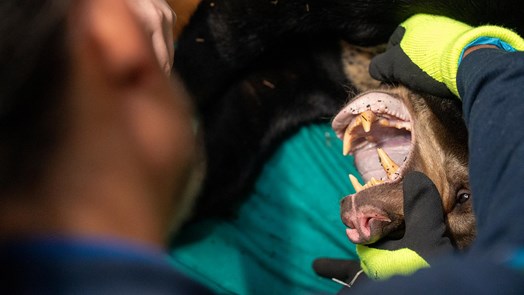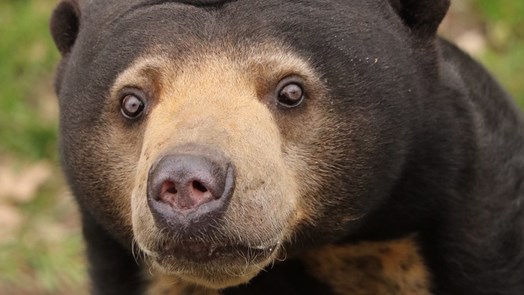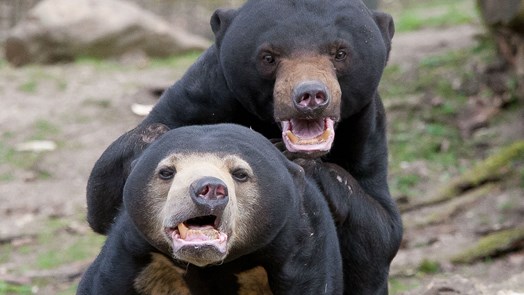Early in the morning of Wednesday 18 July 2018, we transported a male Sun bear to Allwetterzoo Münster, Germany. Burgers' Zoo will shortly receive a new Sun bear from Edinburgh Zoo, Scotland. We hope that the already proven Scottish breeding male will be able to produce offspring with the two Arnhem females.
Sun bears reproduce relatively difficulty in European zoos, and the European breeding programme faces some difficult challenges. Firstly, there is a clear surplus of females. Secondly, many animals are already quite old and may no longer be fertile. Thirdly and finally, Sun bears are quite selective in their choice of partner and have high demands for their living conditions.
Transfer window open for sun bears
Thursday, 19 July 2018

Unfortunately infertile
Research by the renowned IZW institute (Institut für Zoo- und Wildtierforschung) in Berlin, which has considerable experience with fertility research in mammalian species, unfortunately, showed that our male Sun bear is infertile. The male bear was born in the zoo of East Berlin on 30 May 2004 and was hand-reared. This meant that when he was young, he was unable to gain the valuable experience of watching other Sun bears reproduce and raise their offspring.
Time is running out
The two female Sun bears in Arnhem are not getting any younger. They were born in Cologne Zoo on 4 August 2000 and 29 January 2000. Additional research by the IZW shows that one of the females should already be regarded as infertile, while the other female has an approximately fifty per cent chance of a successful pregnancy.
Proven breeding male on the way
A proven breeding male will soon be travelling to Arnhem from Edinburgh Zoo, Scotland. This male Sun bear has already successfully produced offspring in the past. The arrival of a virile male can naturally stimulate the hormonal balance in the two females. If both women fail to become pregnant, Burgers' Zoo hopes to be able to introduce a younger female to the fertile male in the future. However, for the moment, all hope is on the present two female Sun bears.



